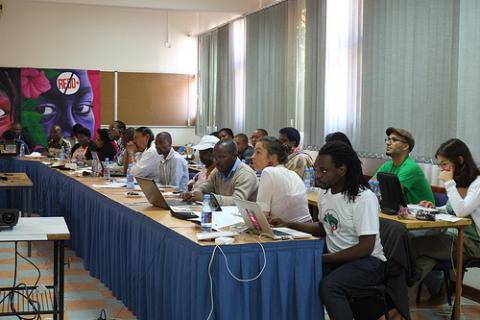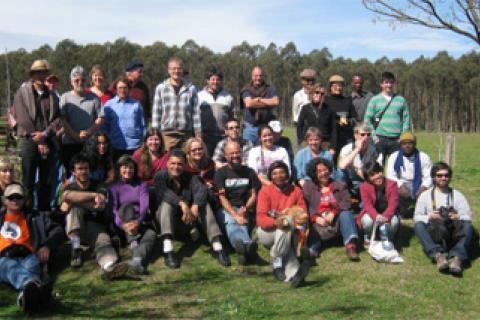The NO REDD in Africa Network gathered here in Maputo Mozambique, on 26 August 2013 during the occasion of an international workshop on REDD with participants from Mozambique, other African countries, North America and South America deliberated on the implications of Reducing Emissions from Deforestation and forest Degradation (REDD) for Africa and by extension the global South.
Declarations
September 21, 2011 – Montevideo, Uruguay
On the occasion of the International Day of Struggle Against Tree Plantations, September 21st, social environmental organisations from Africa, Latin America, Asia and Europe gathered in Montevideo in order to exchange knowledge and experiences of resistance to the impacts of tree plantations.
Heredia, 28 March 2009
We, organisations of civil society from every continent, have met in Costa Rica between 24 and 28 March to share experiences, visit peasant communities, think and present proposals on the question of climate, forests, and plantations.
Joint Release from World Rainforest Movement, Friends of the Earth International and Global Forest Coalition
Groups call for Action on 21 September: International Day Against Monoculture Tree Plantations
United Nations Framework Convention on Climate Change COP 13 Bali, Indonesia, December 2007
Governments meeting in Bali, Indonesia for the 13th Conference of the Parties/3rd Meeting of the Parties to the United Nations’ Framework Convention on Climate Change (UNFCCC), 3-14 December 2007, need to recognise that this may be our last opportunity to stop runaway climate change and that with 18-20% of annual carbon emissions being caused by deforestation, protecting our forests is a key part of this.
In 2004, September 21st was declared as International Day against Monoculture Tree Plantations by a number of organizations throughout the world. On this day, people in every continent carry out actions to generate awareness on the impacts of large scale tree monocultures on local communities and their environments.
By the World Rainforest Movement - March 2007.
At the beginning of the twentieth century, women's struggles for emancipation took on greater visibility. They were times of social and political transformations and women started to mobilize for their rights, and among these, for their right to vote. In 1911, the first International Women's Day was celebrated and in 1975, the United Nations Assembly formally recognized 8 March as International Women?s Day.
By the World Rainforest Movement. 8 March 2006.
On the International Women's Day, the World Rainforest Movement wants to pay homage to the innumerable women that have played and still play an essential role in the governance and nurturing of forests and other ecosystems.
Forests provide the source and means of survival for millions of people, who find there firewood, medicinal plants, food, compost for agriculture, and a full range of uses. They are also vital for the healthy state of our global environment.
The following Statement was issued on 24/11/05 in Vitoria, Espirito Santo, Brazil at an international meeting on building support for local communities against large-scale tree plantations and GMO trees. This meeting was co-sponsored by World Rainforest Movement, FASE-ES and Global Justice Ecology Project.
By the World Rainforest Movement.
August 9 has been declared as International Day of the World's Indigenous People. On this date, the WRM wishes to express its full support to the numerous indigenous peoples around the world that are struggling for the recognition of their rights.





